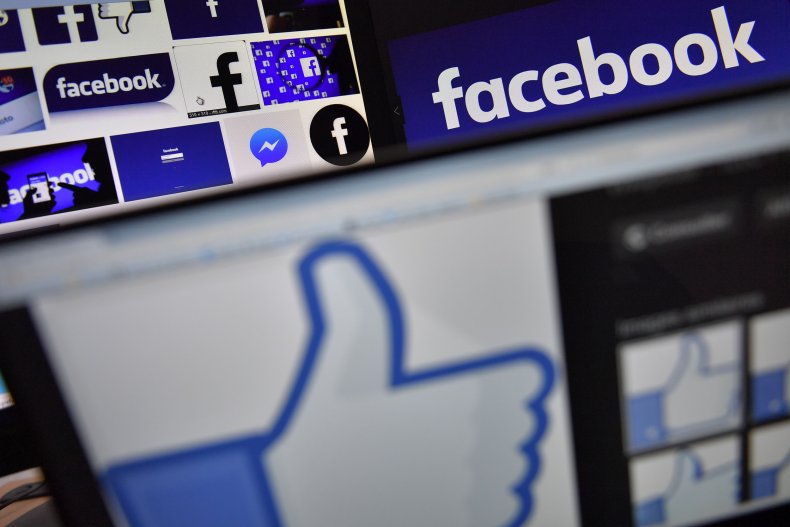After months of media speculation about how Facebook’s Oversight Board of Appeal would rule on the platform’s ban of former president Donald Trump, the decision landed not with a bang, but a death rattle. It only demonstrated that the independent review panel funded by Facebook to the tune of $130 million has destroyed its own credibility.
It is time to find a way to resist big tech’s information suppression and ensure a brighter future for digital free speech. The one glimmer of light in the board’s deeply flawed opinion is that it forces us to face real solutions.
The Facebook case dealt with two main issues, both mismanaged by the oversight board. One was the fact that Facebook’s suspension of the then-president was indefinite. The other was that the same-day suspension of President Trump’s account—based on two posts from January 6 in the wake of the Capitol Hill incursion—happened in the first place.
Both messages followed the president’s address to thousands of supporters at a rally several blocks away from the Capitol, which ended an hour and a half before the Capitol was breached. The first, more important post included an appeal for peace and order: “We have to have peace. We have to have law and order. We have to respect our great people in law and order. We don’t want anybody hurt.”
When reviewing the former president’s posts, the board refused to apply the Facebook policy regarding “incitement” to violence—because Facebook never argued it should.
And with good reason. In both posts, and in the nearly 11,000-word address the president delivered to his supporters, nothing close to incitement occurred. The Associated Press transcript of the address, published on January 14, shows 10 general references to “fight,” each used in the lawful vernacular in the context of “fighting” with the media, praising some Republicans for “fighting” politically or the need for his followers to “fight” for a better America.

AFP PHOTO / LOIC VENANCE
The board did not rely on Supreme Court decisions regarding First Amendment principles for guidance. Doing so clearly would have led to a different result. Instead, it adopted the elusive vagaries of international law. It latched onto the United Nations’ Rabat Plan of Action, a document aimed at quelling international incitement to hatred. Buried within those U.N. proceedings was a call for national leaders to condemn violence.
But didn’t President Trump do exactly that? Therein lies the rub. Facebook’s oversight board dismissed his calls for peace and lawful behavior, labeling them “perfunctory” and “insufficient.” This private review panel of Facebook’s had weighed an American president’s political discourse and calls for peaceful protest regarding the electoral college process and found them so lacking that it concluded he should be banished from one of the world’s most powerful digital platforms—all based on the ruminations of the United Nations, no less.
There are numerous other problems with the board’s reasoning, but two in particular stand out. One deals with a specific Facebook policy.
In order to find that President Trump violated Facebook policy—the one that forbids praise for dangerous or violent persons or groups—the social media giant needed to show that he was praising those who trespassed into the Capitol and wreaked havoc, as opposed to merely praising his thousands of law-abiding supporters in Washington. Yet the evidence is clear that groups like the Oath Keepers, with no ties to President Trump, his administration or his campaign, had been secretly planning for months to foment a disturbance at the Capitol.
Ignoring the Supreme Court wisdom that, when in doubt, free speech should prevail, the board took the opposite route. It concluded that President Trump’s praise for his “patriot” followers was not directed toward the elderly couples with MAGA hats or the smiling young parents attending with children in tow. No, the board concluded, he must have been intentionally praising the insurgents. Under any view of the facts, this was a disturbingly unfounded position.
The second issue in this case—where the board found that Facebook lacked any authority to ban Trump indefinitely—is even more bizarre. Rather than ordering Facebook to reinstate his account as it should, it punted the case back to Facebook, giving it a leisurely six months to reconsider the suspension.
This Alice-in-Wonderland result, fueled by an inscrutable international law approach, reminds us that our Founders had a better idea. If any principles should inform the content decisions of big tech monopolies, it should be those of our First Amendment. Real solutions are on the table. H.R. 285, the CASE-IT Act sponsored by Rep. Gregory Steube (R-Fla.) requires exactly that, giving private citizens the right to bring lawsuits to enforce it. No one should trust Silicon Valley to invent its own self-serving solutions—instead, trust We the People.
Craig Parshall is a constitutional attorney serving as Senior Advisor on Legal Policy and Civil Liberties to the American Principles Project and is Special Counsel to the American Center for Law and Justice.
The views expressed in this article are the writer’s own.


